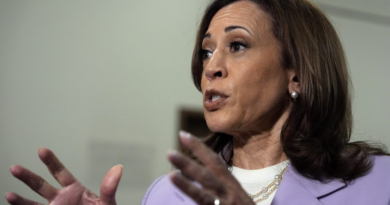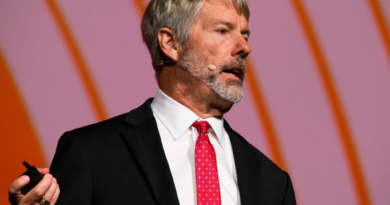A billionaire titan and the former third-wealthiest person in the world was just charged in a mammoth $2 billion bribery scheme
In a stunning fall from grace, the billionaire chairman and founder of Adani Group, Gautam Adani, was accused of being part of a colossal alleged bribery scheme involving subsidiaries Adani Green and Azure Power, the latter of which traded on the New York Stock Exchange.
Adani, 62, his nephew Sagar Adani, 30, and half a dozen other executives were named in a five-count criminal indictment unsealed in a New York federal court on Wednesday. Authorities claim the two, along with others, promised more than $250 million in corrupt payments to government officials to secure billions worth of power and electricity agreements. The various allegations detailed a four-year plan spanning the globe that involved meetups with officials to broker bribes and power deals—some that allegedly involved Gautam Adani himself.
All told, authorities on Wednesday accused the executives and conspirators of raising more than $2 billion in loans and bond offerings under false pretenses.
“This indictment alleges schemes to pay over $250 million in bribes to Indian government officials, to lie to investors and banks to raise billions of dollars, and to obstruct justice,” stated Deputy Assistant Attorney General Lisa H. Miller. “These offenses were allegedly committed by senior executives and directors to obtain and finance massive state energy supply contracts through corruption and fraud at the expense of U.S. investors.”
The criminal indictment follows the meteoric rise of Adani as a magnate on the global stage. He was previously heralded as the third-richest person in the world behind Elon Musk and Jeff Bezos. He founded Adani Group in 1998 as a commodity trading firm and later expanded it into a conglomerate that included airports, shipping ports, and railways to distribute power and energy. Gautam and his brother Rajesh (Sagar Adani’s father) formed Adani Green Energy in 2015 to jumpstart the conglomerate’s renewable energy business. They hired Sagar Adani to work for Adani Green, according to Securities and Exchange Commission documents. Adani Group’s holdings currently have a market cap of more than $200 billion.
Authorities claimed the defendants involved in the scheme tried to hide their tracks using code names. They referred to Gautam Adani as “SAG,” “Mr. A,” “Numero uno,” and “the big man.” They referred to another defendant, Adani Green CEO Vneet S. Jaain as “V,” “snake,” and “numero uno minus one.” The indictment also charged former executives of an unnamed U.S. renewable energy company, Ranjit Gupta and Rupesh Agarwal.
Authorities claimed Gautam Adani’s nephew, Sagar Adani, allegedly used his cell phone to track details of the bribes promised to government officials. The so-called “Bribe Notes” tracked the state or region for which government officials had been offered a bribe, the total bribe amount, and the amount of solar power the state or region would purchase in exchange for the payment. The SEC alleged in a separate complaint that Sagar communicated the need to “incentivize” Indian officials and states to “motivate” them to agree to contracts.
Similarly, authorities claimed Rupesh Agarwal, a consultant for an unnamed U.S. company and a former chief strategy and commercial officer, used PowerPoint and Excel to determine which corrupt payment option was best in offering bribes. One of the PowerPoints suggested concealing the bribes as development fees, the complaint states. Authorities claim some PowerPoint analyses and texts were destroyed or concealed in a scheme to obstruct a government’s investigation.
Officials claimed Gautam Adani met multiple times with officials, including one from Andhra Pradesh, to broker a power agreement. The largest bribe in the indictment is a $228 million payment offered to secure contracts in the Andhra Pradesh region. The indictment noted that Gautam Adani touted the signing of the Andhra Pradesh agreement as “the world’s largest.”
Authorities also alleged that Vneet Jaain, CEO of Adani Green Energy, used his phone to capture evidence. In 2022, Jaain allegedly took a photo of a document summarizing the amounts the U.S. issuer owed an Indian energy company for its portion of the bribes promised. The summary allegedly stated the U.S. issuer owed about $7 million for one set of bribes, and $76 million for another set.
Starting in 2020, authorities said Ranjit Gupta, an Indian citizen who served as CEO of the U.S. issuer, and an unnamed co-conspirator, plotted with Gautam Adani, Sagar Adani, and Vneet Jaain to allegedly hatch the plan to pay bribes to government officials in India. They wanted to persuade state electricity distribution companies to enter into contracts with Solar Energy Corporation of India (SECI). Others, including Cyril Cabanes, willfully joined in, authorities claim.
Authorities also alleged that five Adani executives and unnamed conspirators involved in the scheme pledged to destroy or hide documents or provide false information to the U.S. government in connection with the investigation. According to the SEC, its investigation began in March 2022 with a request for information to the U.S. issuer. Days later, authorities alleged an unnamed co-conspirator sent a message about it. The executives facing the allegations attempted to get the board to jumpstart an internal investigation under the guise of “good governance” and hired a law firm to be supervised by a subcommittee of the board. According to the SEC, the company attempted to shield itself from scrutiny from regulators by touting its strong governance and anti-bribery procedures.
The regulatory investigations remain ongoing.




